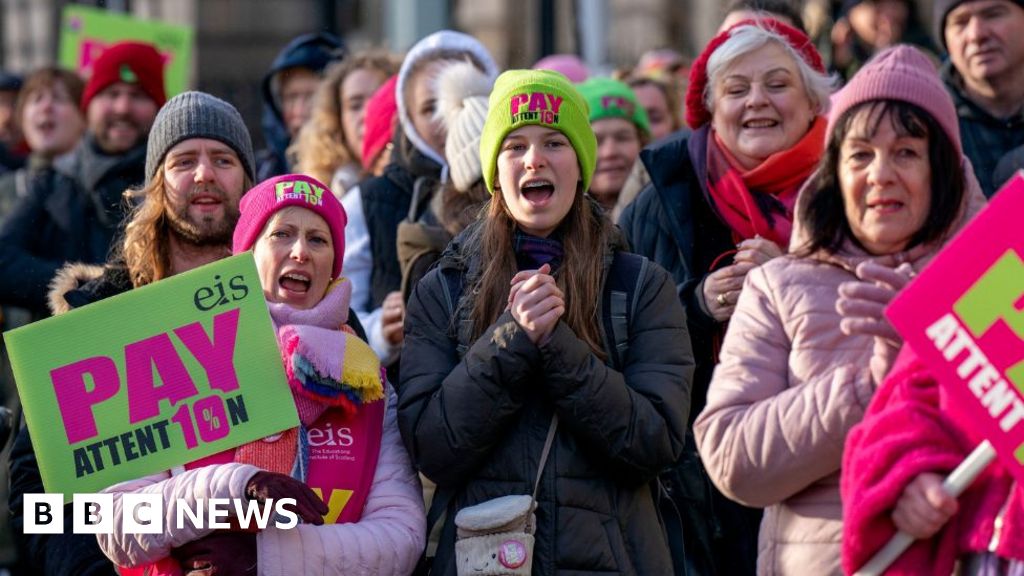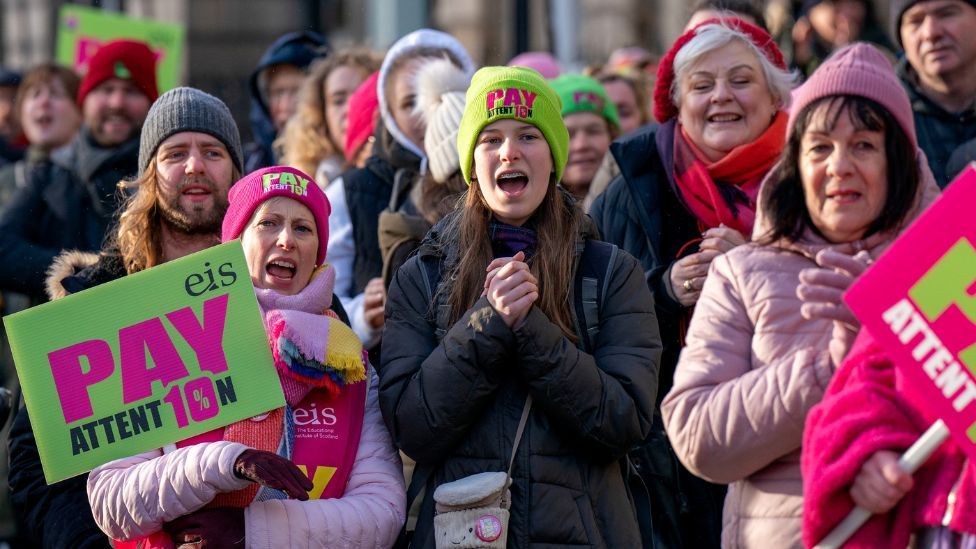 PA Media
PA MediaA 16-day wave of rolling teachers strikes has begun in Scotland, with every local authority affected over the period.
Members of the Educational Institute of Scotland (EIS) will strike in two local authorities per day from 16 January until 6 February.
Union leaders have warned there is no end in sight to the current pay dispute.
Teachers want a 10% uplift, which ministers and councils have said is unaffordable.
The current 5% offer includes rises of up to 6.85% for the lowest-paid staff.
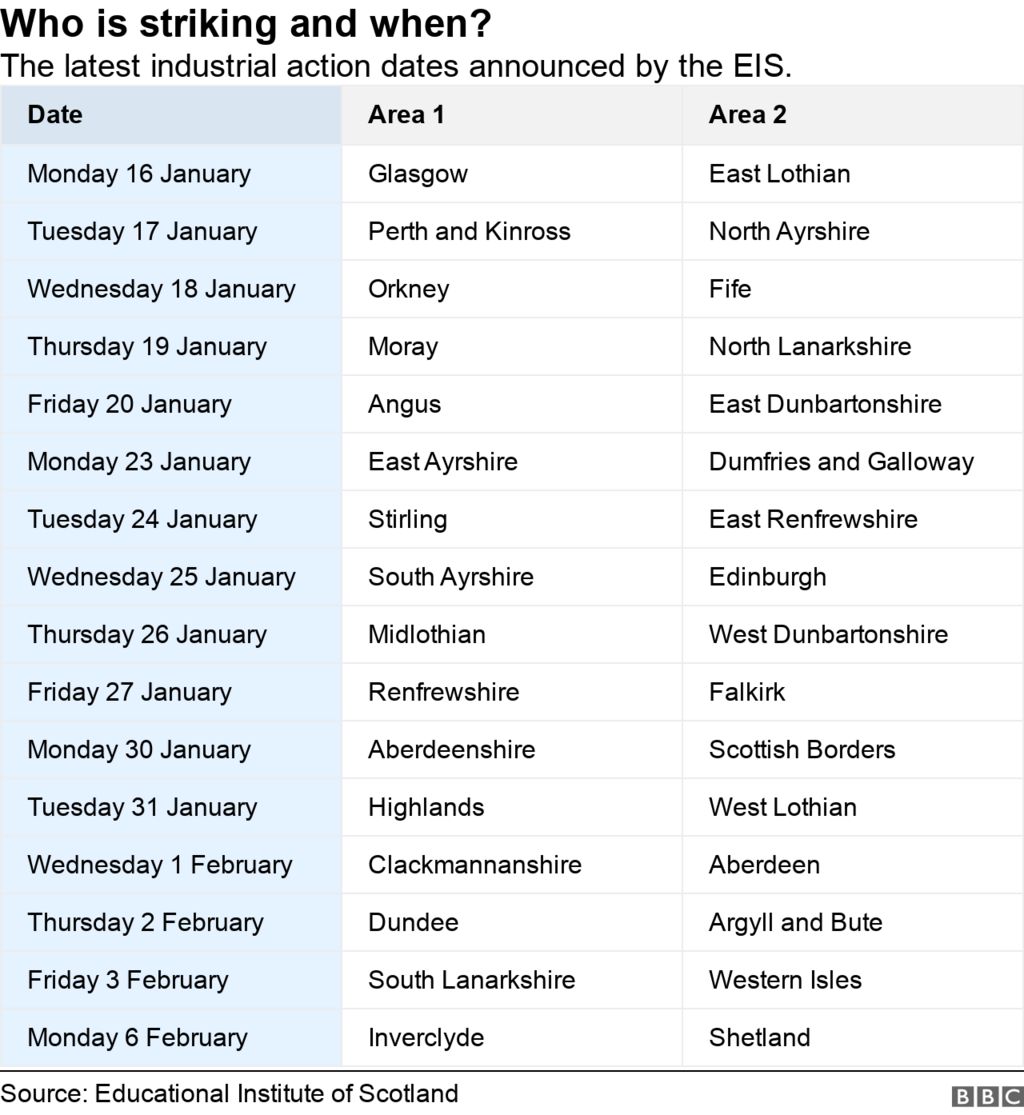
The EIS recently announced a further 22 days of extra strikes between 13 March and 21 April.
It will include two days of national strike action in all schools on 28 February and 1 March, followed by a rolling programme of strikes for 20 days between 13 March and 21 April.
This round of action will be more complicated, with different schools in each local authority hit over three days – primaries on the first day, all schools on the second and secondaries on the third.
- Scottish teachers begin wave of rolling strikes
- Scottish teachers announce 22 more days of strikes
Education Secretary Shirley-Anne Somerville has said she remained committed to a “fair and sustainable pay deal”.
Any new offer would need to be agreed by all 32 council leaders but they are not due to meet until towards the end of January.
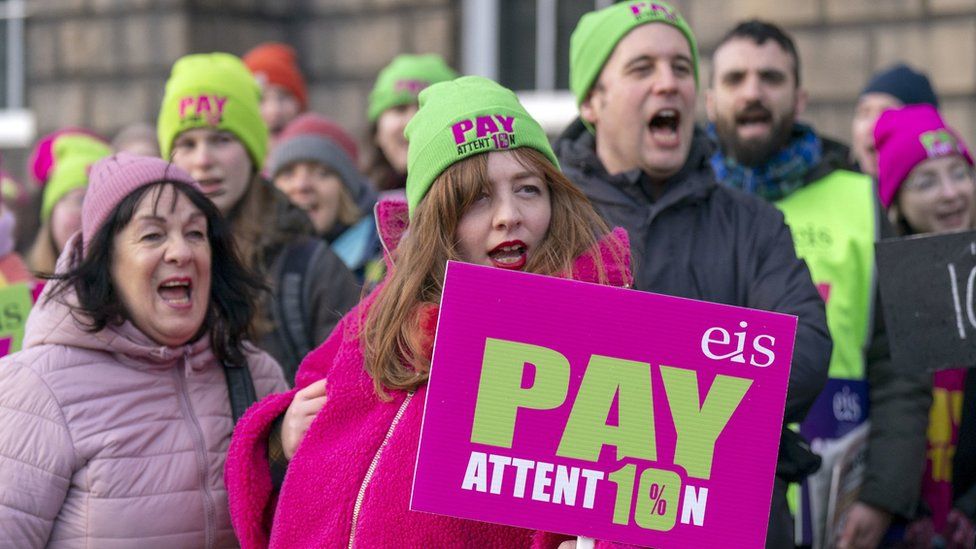
Strikes recently closed almost every primary and secondary school in Scotland across two days.
The strikes also saw all four unions representing teachers and headteachers walk out together for the first time.
Members of the EIS, Scotland’s largest teaching union, the NASUWT, Scottish Secondary Teachers’ Association (SSTA) and the Association of Headteachers and Deputes (AHDS) unions were involved.
-
Scottish teachers begin wave of rolling strikes
-
9 hours ago
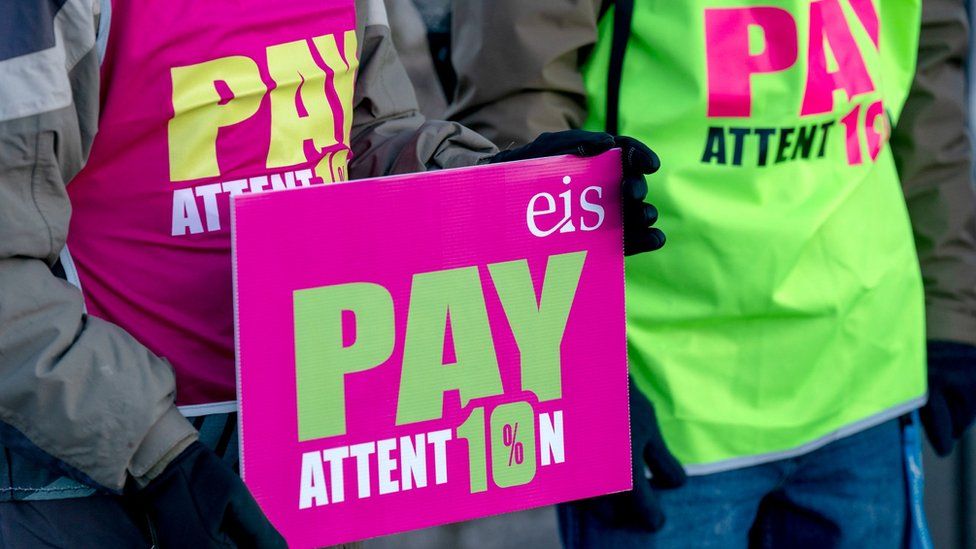
-
-
Scottish teachers announce 22 more days of strikes
-
2 days ago
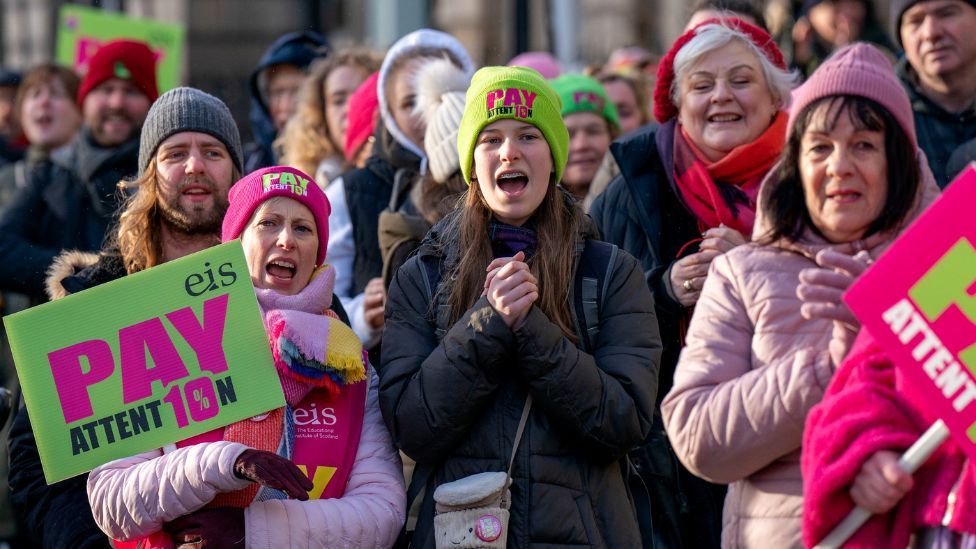
-
